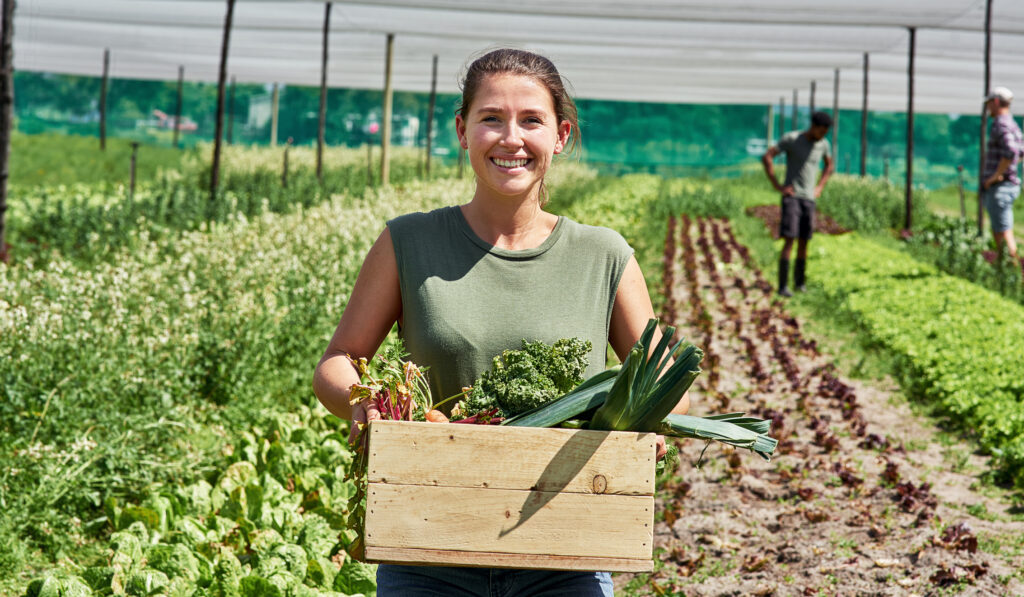Brazilian scientist whose work has reduced input costs, increased yields, named 2025 World Food Prize laureate

Michael Crumb May 14, 2025 | 11:54 am
4 min read time
851 wordsAg and Environment, All Latest News, Iowa Stops Hunger
A Brazilian microbiologist whose innovation has increased yields while lowering input costs for farmers was named the 2025 World Food Prize Laureate during a ceremony Tuesday evening at the World Food Prize Hall of Laureates in Des Moines.

Mariangela Hungria will receive the $500,000 World Food Prize during the Borlaug Dialogue, scheduled for Oct. 21-23 in Des Moines.
Hungria has developed dozens of biological seed and soil treatments that use soil bacteria to supplement synthetic fertilizer, reducing the need for synthetic fertilizer and saving Brazilian farmers up to $40 billion a year in input costs and avoiding more than 180 million metric tons of carbon dioxide equivalent emissions each year.
Her work has also improved crop yields, including soybeans, which are now the country’s top agricultural export. This year alone Brazil is expected to produce 173 million tons of soybeans, up from 15 million tons in 1979.
The World Food Prize was founded in 1986 by Norman Borlaug, who won the Nobel Peace Prize in 1970 for his work to improve the world’s food supply. It recognizes an individual whose work and innovation have helped fight hunger worldwide. Borlaug, a Cresco, Iowa, native who was known as the father of the “Green Revolution,” died in 2009.
Hungria is the 56th laureate and the 10th woman to receive the prize.
Mahal Husain, the World Food Prize Foundation president, said Hungria’s work “serves as a bridge, connecting continents, restoring soils, uplifting farmers and reshaping the very ground we stand on now.”
“Dr. Hungria exemplifies how passion, purpose and scientific innovation can converge to create lasting change and impact,” Husain said. “Like so many women before her, she has transformed the landscape of agriculture using science to bridge the gap between need and innovation, and proving that women are not only caretakers of the land but also drivers of global progress.”
Tom Vilsack, World Food Prize Foundation CEO, said awarding the World Food Prize and recognizing the work that is being done to fight world hunger helps “emphasize the urgency of the moment and the challenge that faces each and everyone of us.”
He said 153 Nobel and World Food Prize laureates signed a laureate letter earlier this year suggesting it was unacceptable that there are 733 million people in the world who are food insecure.
“We can do better, and that’s why we’re here today to recognize those who make a difference, to those who believe we can do better,” said Vilsack, a former U.S. agricultural secretary and former Iowa governor.
According to a news release that accompanied the live announcement, Hungria was an early proponent of biological nitrogen fixation, the process in which crops form a mutually beneficial association with soil bacteria that provides nitrogen, which is essential for plant growth.
In her work, she found that by applying rhizobia, a bacteria that interacts with plant roots to provide nitrogen, yields could increase up to 8% compared to the use of synthetic fertilizer.
Hungria was also the first scientist to isolate strains of the bacterium azospirillum brasilense to improve the absorption of nitrogen and phytohormones. The release said that her research showed that by combining azospirillum brasilense and rhizobia she could double the yield increase in soybeans.
Today, more than 70 million doses of combined inoculants are sold and applied across an estimated 15 million hectares in Brazil each year.
Hungria, a professor at the State University of Parana and the Federal University of Technology of the State of Parana, is now applying her research to restoring degraded pastureland. She has developed the first inoculant for grass pastures, resulting in a 22% increase in biomass to support more and better food for cattle.
Hungria was not present at Tuesday’s ceremony, but said in the release that her life has been dedicated to replacing chemical fertilizer with biologicals.
“I’m really proud of making a contribution towards producing food while decreasing the environmental impact,” she said. “The goal was to increase yield with the least possible use of chemicals, and we achieved this through more biologicals.”
Hungria was named one of the 100 most powerful women in agriculture in Brazil by Forbes in 2021. She has been listed in the top 1% of agricultural scientists by Stanford University since 2020 and received Brazil’s highest honor in agriculture, the Frederico de Menezes Veiga award.
She said she was inspired by Borlaug’s work.
“I like to say that he made the Green Revolution possible, and we had this great opportunity to start a ‘micro green revolution’ – a green revolution, but with microorganisms,” she said. “I can’t quite believe I am now receiving the World Food Prize. Many people questioned me and my abilities throughout my career but I believed in what I was doing and persevered. The role of women in agriculture, from farming to science, deserves more recognition. I hope my achievement inspires others to pursue their passions in science.”

Michael Crumb
Michael Crumb is a senior staff writer at Business Record. He covers real estate and development and transportation.










